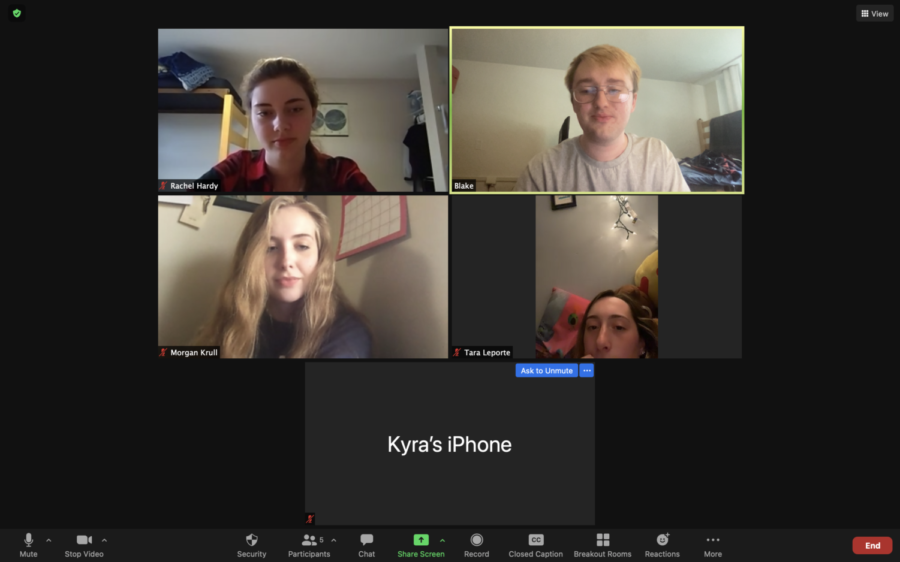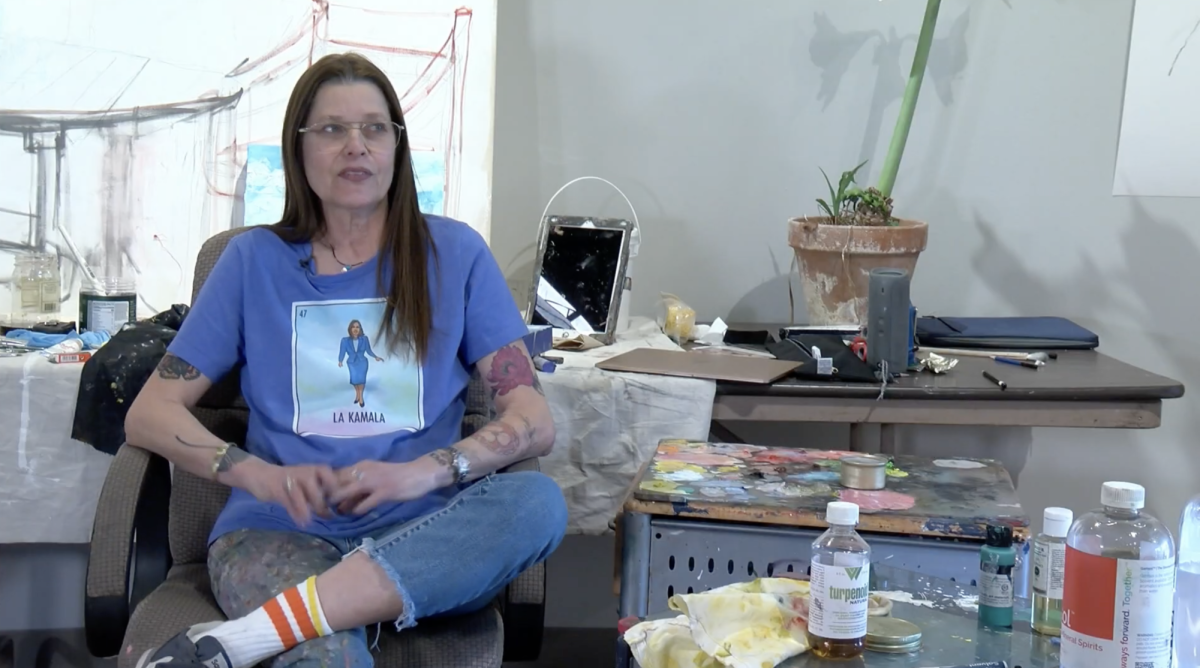Zoom fatigue: The aftermaths of screen staring
May 6, 2021
After a full year of meetings, classes, conferences, and events held via Zoom, many Buena Vista University students, faculty, and staff are experiencing Zoom fatigue and looking for ways to combat it and finish the semester successfully.
Psychologists and health experts have defined Zoom fatigue as the tiredness we feel after overusing video conferencing technology. They note that the tiredness goes beyond just weary eyes and extends to physical and mental exhaustion.
There are reasons why Zoom makes us tired. For one thing, excessive hours of eye contact are highly intense. According to recent research from Stanford University, in a normal meeting, people must look at various places, whether it be directly at the speaker, taking notes or looking elsewhere. But on Zoom calls, everyone is looking at everyone, all the time. A listener is treated nonverbally like a speaker, so even if you do not speak once in a meeting, you are still looking at faces staring at you. Secondly, seeing yourself during video chats constantly in real-time is fatiguing. Thirdly, video chats dramatically reduce our visual mobility. The body wasn’t made to be in one place for many hours. Lastly, the cognitive load is higher in video chats.
The Director of Counseling Services at BVU Julie Anderson has noticed Zoom fatigue among students. She described that the majority of students that come to counseling services arrive for several reasons, from stress to personal issues. It varies from person to person. “One thing I teach in my counseling course is mindfulness: Being present in the moment. Knowing when to take breaks and debrief.” Julie teaches a course on this very topic. She gave advice for anyone who struggles with zoom fatigue. “Create boundaries for yourself that plan time away from screens so your mind and body can recuperate.” Numerous hours staring at a screen in a sedentary position takes a toll on your body mentally and physically, so taking time to rest, walk and eat can get your body recharged for the next day. Health is wealth, so if you do not take care of your body, it will cost you big time.
Max Olsan, a remote student at BVU has had a mixed experience, but is definitely looking forward to zoom learning and zoom time ending soon. “My remote experience has been pretty good, I haven’t had trouble with it, it is a bit boring, but we are almost at the end so that’s good,” Olsan said.
After long hours of zoom meetings, the body is depleted mentally and physically so taking time for yourself is very important. “Create boundaries for yourself that plan time away from screens so your mind and body can recuperate,” Anderson said.








